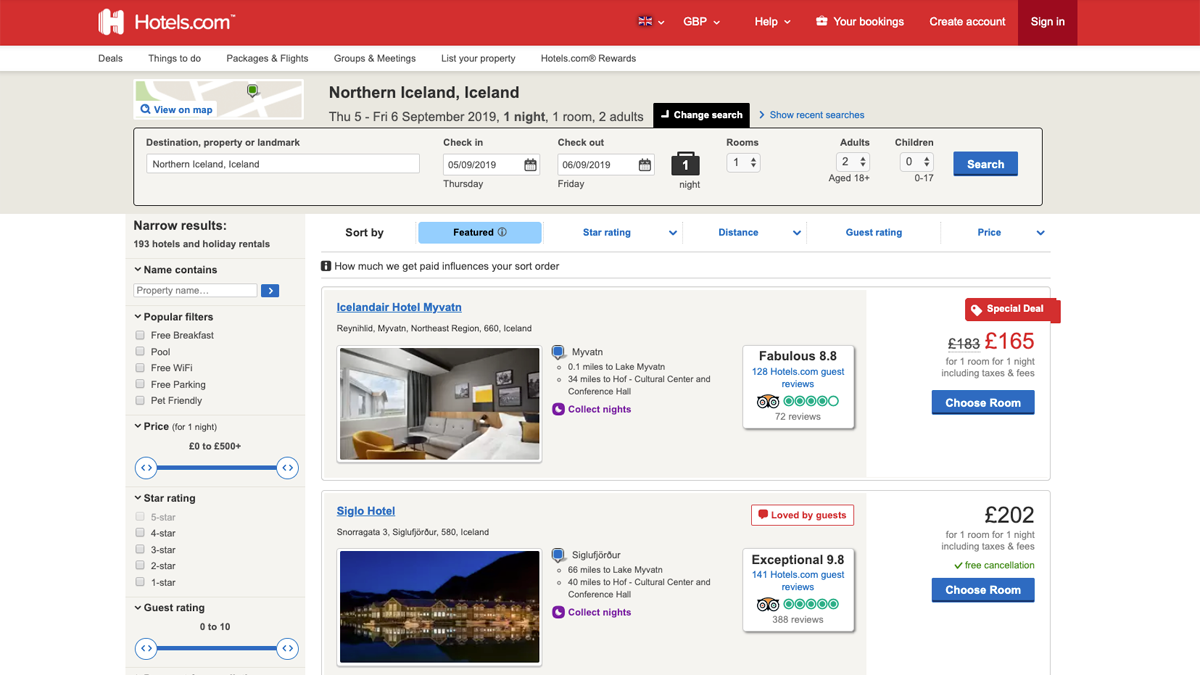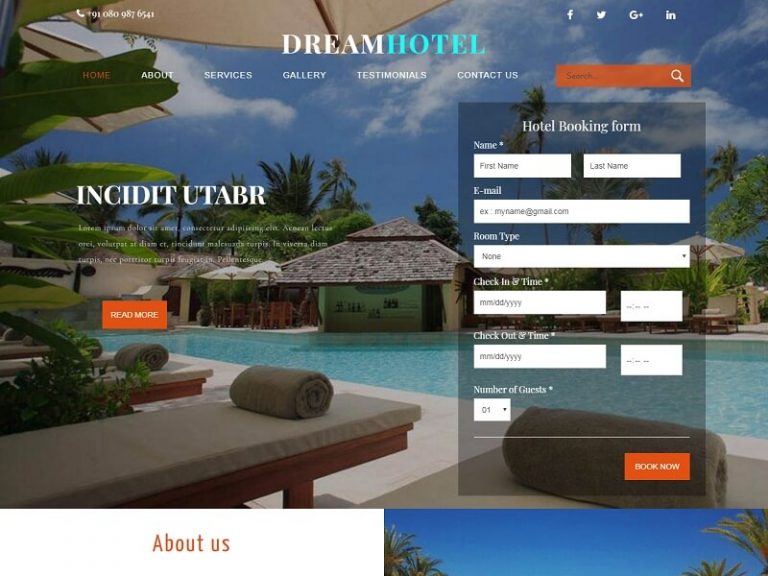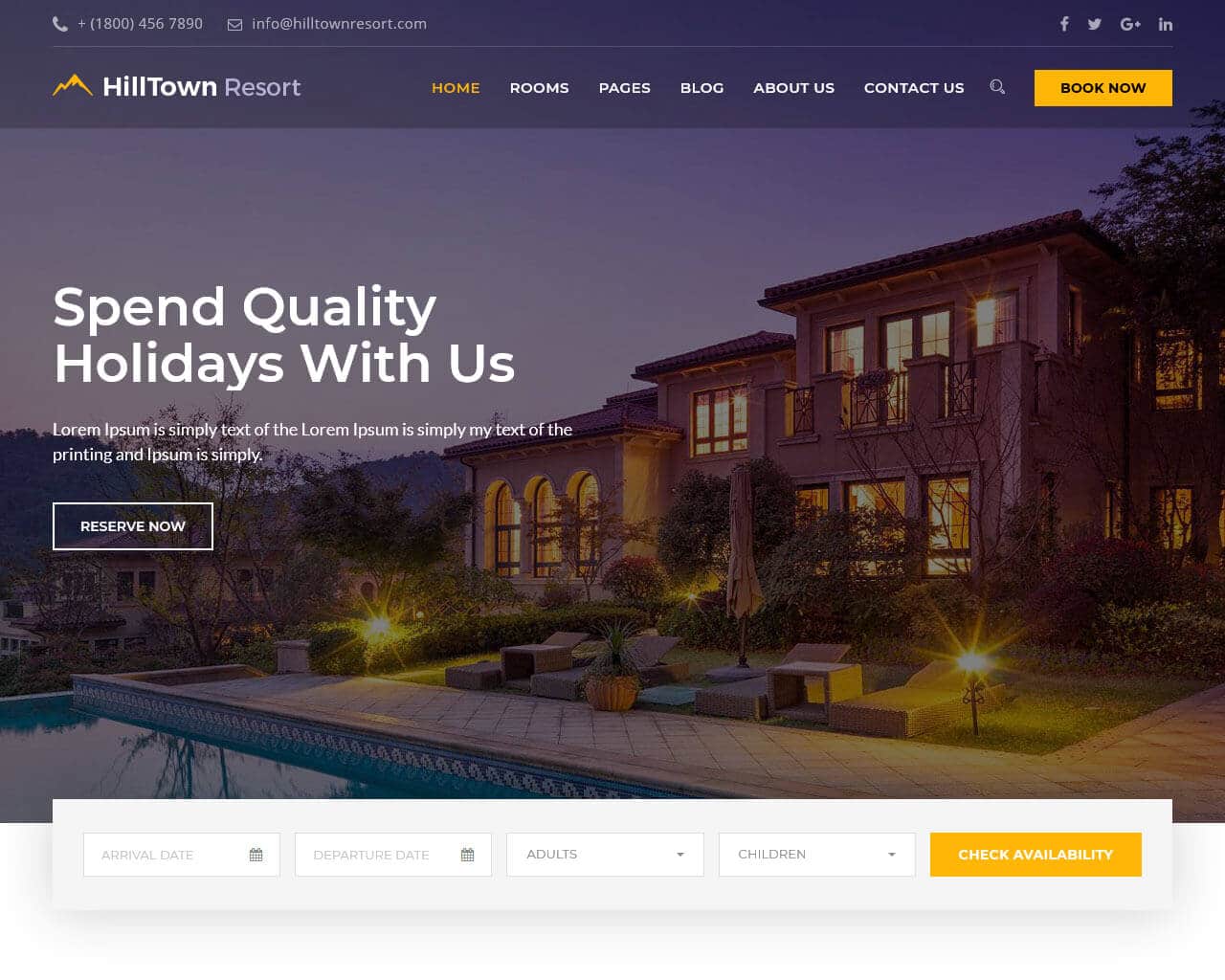Best Hotel Booking Site Your Ultimate Guide
A good hotel booking site is crucial for savvy travelers. Choosing the right platform can save you money and ensure a smooth booking experience. This guide explores various booking sites, comparing features, prices, and user experiences to help you find the perfect match for your needs. We’ll delve into the factors that influence traveler choices, from price comparisons to customer support, providing insights into the best strategies for finding deals and optimizing your search.
From popular sites like Booking.com and Expedia to niche platforms catering to specific needs, this comprehensive overview covers the evolution of online hotel booking, highlighting the key features and business models employed by these sites. We’ll analyze the factors influencing your decision, including price, reviews, and user experience, to provide a clear understanding of what to look for when making a booking. Finally, we’ll examine the importance of customer support, mobile optimization, and emerging trends in this ever-evolving industry.
Overview of Hotel Booking Sites

Source: techadvisor.com
Hotel booking sites have revolutionized the travel industry, offering a convenient and often cost-effective way to secure accommodations. These platforms connect travelers with a vast network of hotels worldwide, streamlining the process from initial search to final booking. The evolution of these sites reflects the broader shift toward online commerce and the increasing importance of user experience.
Popular Hotel Booking Websites
A multitude of platforms cater to the diverse needs of travelers. Some of the most recognized and frequently used include Booking.com, Expedia, Hotels.com, Kayak, and Agoda. These sites offer a range of features, from price comparisons to user reviews, enabling informed decision-making.
Types of Hotel Booking Sites
Different types of hotel booking sites employ varying business models. Metasearch engines, such as Kayak or Google Flights, act as intermediaries, aggregating results from multiple booking platforms. Direct booking sites, like the hotel’s own website, allow for reservations without intermediary fees. Aggregators, like Booking.com, act as central hubs, offering a wide selection of hotels and often providing additional services. This variety allows travelers to choose the approach that best suits their needs and budget.
History and Evolution of Online Hotel Booking
The online hotel booking industry emerged from the early days of the internet. Initially, simple directories and listings emerged. As technology advanced, more sophisticated search engines and booking platforms developed, offering enhanced functionalities. The integration of user reviews and payment gateways further improved the user experience and the trust associated with online transactions. This evolution reflects the dynamic interplay between technological advancements and consumer needs.
Business Models of Hotel Booking Sites
The business models employed by these sites vary. Some operate on a commission basis, receiving a fee from hotels for each booking facilitated. Others offer membership programs or loyalty rewards to attract and retain customers. Furthermore, many sites offer value-added services such as travel insurance, airport transfers, or rental car services. This diverse approach reflects the complexity and competitive nature of the industry.
Comparison of Booking Platform Features
| Booking Site | Price Comparison | User Reviews | Payment Options |
|---|---|---|---|
| Booking.com | Yes | Yes | Various (credit cards, debit cards, etc.) |
| Expedia | Yes | Yes | Various (credit cards, debit cards, etc.) |
| Hotels.com | Yes | Yes | Various (credit cards, debit cards, etc.) |
| Kayak | Yes (metasearch) | Limited | Various (often routed through other booking platforms) |
| Agoda | Yes | Yes | Various (credit cards, debit cards, etc.) |
The table above presents a simplified comparison of key features. Each platform may offer additional services and functionalities. Factors like user interface, customer service, and specific hotel selections can further influence the choice of a particular booking site.
Factors Influencing Choice
Choosing the right online hotel booking site is crucial for a positive travel experience. Travelers meticulously evaluate various factors, from price and reviews to the overall user experience. Understanding these influences helps travelers make informed decisions and select a platform that best suits their needs.
Price Considerations
Pricing is a primary driver for many travelers. A significant portion of the online hotel booking market is dominated by competitive pricing strategies. Sites often employ dynamic pricing models, adjusting rates based on demand, seasonality, and availability. Travelers frequently compare prices across multiple platforms to identify the most economical options. This comparison often involves considering not only the base room rate but also any applicable taxes, fees, and potential extras like breakfast or amenities.
Importance of Reviews and User Experience
Reviews and user experience significantly impact site selection. Potential guests extensively scrutinize reviews to gauge the quality and accuracy of a hotel. Positive reviews often lead to a higher likelihood of booking, while negative feedback can dissuade travelers. A site’s user-friendly interface and seamless booking process contribute to a positive user experience. A well-designed platform that is easy to navigate, with clear information, and allows for smooth transactions tends to attract and retain customers.
Role of Loyalty Programs and Special Offers
Loyalty programs and special offers play a significant role in traveler choices. Many platforms provide loyalty programs that reward frequent users with discounts, upgrades, or exclusive access to deals. Special offers, such as seasonal promotions or limited-time discounts, can significantly influence a traveler’s decision-making process. The value and perceived benefit of these programs often influence the decision of whether to book on a specific platform.
Impact of Payment Methods and Security Measures
Payment methods and security measures are paramount for a seamless and trustworthy booking experience. Travelers prefer platforms that offer a wide range of secure payment options, such as credit cards, debit cards, and digital wallets. A strong emphasis on data security and privacy assurance is crucial. The confidence in the platform’s security practices directly influences a traveler’s willingness to proceed with a booking.
Influence of Mobile-Friendliness and Ease of Navigation
Mobile-friendliness and ease of navigation are essential aspects of the user experience. The increasing use of mobile devices for travel planning necessitates that booking sites provide a smooth and responsive mobile experience. An intuitive interface and seamless navigation across different devices are crucial. A platform’s mobile-friendliness and easy navigation can directly impact the booking process’s overall efficiency and user satisfaction.
User Experience and Features
A crucial aspect of choosing the best hotel booking site is the user experience. A well-designed platform streamlines the entire process, from initial search to final booking confirmation, making the experience enjoyable and efficient. This section delves into the critical elements of user-friendly interfaces, effective website designs, and the diverse functionalities that enhance the booking experience.
Importance of User-Friendly Interfaces
A user-friendly interface is paramount for a positive booking experience. Intuitive navigation, clear information presentation, and simple search tools contribute significantly to user satisfaction. Users should easily locate desired hotels, compare options, and complete bookings without frustration. A well-structured layout, coupled with clear calls to action, enhances the overall user journey.
Effective Website Designs for Booking Platforms
Numerous successful hotel booking platforms demonstrate excellent website design principles. Airbnb, for example, employs a clean, modern design with a clear visual hierarchy. Expedia’s layout, while slightly more complex, is intuitive and well-organized, making it easy to filter and compare options. These examples highlight the importance of a visually appealing and functional website design.
Search Functionalities of Different Sites
Different booking sites employ varying search functionalities. Some sites excel at providing highly specific search filters, enabling users to narrow down options based on price range, amenities, and location. Others, like Booking.com, are known for their comprehensive search capabilities, encompassing various options for hotels and related services. The search functionality often determines the initial user experience and subsequent choices.
Features Enhancing the Booking Process
Several features enhance the booking process. Filters allow users to refine their search by criteria like price, star rating, and amenities. Interactive maps provide a visual representation of hotel locations, aiding in spatial awareness. These tools improve efficiency and ensure that users make informed decisions.
Step-by-Step Booking Process on a Hypothetical Site
Let’s illustrate the booking process on a hypothetical site, “DreamDestinations.com”. To book a room at the “Grand Pacific Hotel”, a user would: 1) Enter their desired dates and destination. 2) Use the filters to refine their search by price range and star rating. 3) Utilize the map to locate the hotel. 4) Click on the hotel to view details. 5) Select the desired room type and number of guests. 6) Review the selected booking and proceed to payment. 7) Complete the payment process securely. 8) Receive a confirmation email with booking details.
Features Increasing User Satisfaction
A range of features contributes to enhanced user satisfaction. These include:
- Secure Payment Gateways: Users need confidence in the security of their transactions. Trusted payment gateways are essential for building trust and encouraging bookings.
- Customer Support: Easy access to customer support channels is critical, particularly during the booking process or if issues arise. Providing multiple channels (phone, email, live chat) enhances user satisfaction and facilitates prompt resolution.
- Clear Cancellation Policies: Transparent cancellation policies avoid confusion and ensure a positive experience. Clearly stated conditions promote user understanding and reduce potential disputes.
- Reviews and Ratings: User reviews and ratings are valuable tools. They provide insights into the quality of the hotels and help users make informed decisions.
- Multiple Payment Options: Supporting various payment methods caters to diverse user preferences and enhances accessibility.
Price Comparison and Deals
Finding the best hotel deals often feels like a treasure hunt. Price comparison websites act as your trusty map, guiding you through the labyrinth of hotel prices and helping you unearth hidden discounts. These tools leverage sophisticated algorithms and vast databases to present a clear picture of available options, empowering you to make informed choices.
Price comparison engines are essentially sophisticated search tools that aggregate pricing information from multiple hotel booking platforms. Imagine a central hub that collects data from Expedia, Booking.com, Hotels.com, and dozens more, allowing you to see all the options at once. This consolidation is crucial for finding the best possible price.
Price Comparison Engine Mechanisms
Price comparison websites employ intricate mechanisms to aggregate prices. They use Application Programming Interfaces (APIs) to connect with various booking sites, pulling real-time data on room rates, availability, and associated fees. These APIs provide access to vast amounts of data, enabling the comparison engine to swiftly analyze and present the most competitive options. Crucially, the comparison engine often factors in hidden costs like taxes and fees, offering a more comprehensive price overview than any individual booking site might.
Aggregating Prices from Various Sources
The process of aggregating prices involves several steps. Firstly, the comparison engine establishes connections with numerous booking platforms. Secondly, it extracts crucial information, including room rates, availability, and associated fees. Thirdly, it applies sophisticated algorithms to analyze this data, identifying trends and patterns in pricing. Finally, it presents this data in a user-friendly format, allowing you to compare options across different platforms. This comprehensive view empowers you to find the best value for your money.
Strategies for Finding the Best Deals and Discounts
Finding the best deals requires more than just a simple search. The strategic use of filters and advanced search parameters is key. Consider specific dates, room types, and desired amenities. Additionally, many sites offer exclusive discounts or deals that can be applied to your search. Look for promotions and flash sales that often pop up. Booking in advance can often yield significant savings, especially during peak seasons.
Comparing Prices Across Different Platforms
Comparison tools are designed to streamline the process of comparing prices across multiple booking sites. These tools often display all the available options in a consolidated format, making side-by-side comparisons straightforward. Moreover, these tools often allow you to filter results by criteria like price, location, and star rating. By using these tools, you can avoid the time-consuming task of manually checking multiple websites, enabling you to focus on the details of your desired accommodations.
Price Comparison Techniques
| Technique | Description | Pros | Cons |
|---|---|---|---|
| Advanced Search Filters | Refine search criteria for better matches by specifying dates, location, number of guests, room types, and amenities. | Targeted results, avoiding irrelevant options | It can be complex, requiring multiple inputs. |
| Comparison Tools | Compare prices across multiple sites simultaneously, often presenting a consolidated table or list view. | Efficient price comparisons, comprehensive overview | May miss hidden fees or special offers not readily available on all platforms. |
Customer Support and Trust: Best Hotel Booking Site

Source: ventasoftware.com
Booking a hotel involves more than just price and location. A crucial element is the level of support and trust offered by the platform. Customers need assurance that their bookings are secure and that they can readily resolve any issues that may arise. This section explores the significance of reliable customer support, security measures, and the role of reputation in fostering trust.
Customer support significantly impacts a user’s experience and confidence in a hotel booking site. The quick and effective resolution of queries or problems is essential to maintaining a positive user experience. The methods of support offered, along with the overall reputation of the site, influence customer perception and loyalty.
Importance of Reliable Customer Support
Reliable customer support is vital for handling inquiries, addressing concerns, and resolving potential issues promptly. Effective support minimizes frustration and ensures a smooth booking process. Users often seek assistance with confirmations, cancellations, or changes to their reservations. This support is crucial for building trust and maintaining a positive relationship with customers.
Methods of Customer Support
Various methods are available for providing customer support, each with its advantages. Frequently Asked Questions (FAQs) sections are useful for readily accessible answers to common queries. Live chat provides instant support, allowing users to connect directly with a representative for immediate assistance. Email support offers a more detailed approach for complex inquiries, allowing for thorough responses. Phone support provides direct human interaction for intricate issues that require detailed explanations and problem-solving. The ideal method depends on the complexity and urgency of the issue.
Role of Security and Trust Measures
Security and trust measures are paramount in the online booking industry. Customers need confidence that their personal information and financial details are protected. Robust security measures, such as encryption of data and secure payment gateways, are crucial to prevent fraud and protect user privacy. Trustworthy platforms demonstrate a commitment to user safety, often through security certifications and industry standards. Transparency about security practices and data protection policies is essential to gain and maintain customer trust.
Reputation and Trustworthiness of Different Platforms
The reputation of a hotel booking site plays a significant role in customer perception and trust. Positive reviews, testimonials, and an established presence within the industry are strong indicators of reliability. Websites with a proven track record of delivering on their promises, providing timely support, and handling complaints professionally are more likely to earn customer trust. Customer feedback, both positive and negative, offers valuable insights into the platform’s strengths and areas for improvement. User reviews on independent platforms and news articles often provide a valuable, unbiased assessment of a site’s reliability.
Secure Payment Gateways
Secure payment gateways are essential for protecting sensitive financial information. These gateways utilize encryption technologies to safeguard credit card numbers, debit card details, and other payment data. Well-established and reputable payment processors, like Visa, Mastercard, and PayPal, provide secure transaction environments, reducing the risk of fraud and data breaches. Users should always look for the security seals and logos associated with these reputable payment processors, ensuring that their financial details are handled with the utmost care. The use of industry-standard encryption protocols (e.g., SSL) is a crucial component of a secure payment gateway.
Mobile Experience and Accessibility
A seamless mobile experience is crucial for today’s travelers. A well-optimized mobile platform allows users to browse, compare, and book hotels effortlessly, regardless of their location. This is especially vital for those who prefer to manage their travel arrangements on the go.
Modern travelers expect a smooth and intuitive mobile experience, whether they are checking prices, reading reviews, or finalizing a booking. A robust mobile platform provides convenience and efficiency, enhancing overall user satisfaction.
Significance of Mobile Optimization
Mobile optimization is no longer a luxury but a necessity for hotel booking sites. A dedicated mobile-friendly interface ensures that the site functions flawlessly across various mobile devices, from smartphones to tablets. This adaptability accommodates the diverse screen sizes and operating systems prevalent in the market. Mobile optimization is essential for maximizing reach and engagement, leading to increased conversions and a positive user experience.
Features Enhancing the Mobile Booking Experience
The mobile booking experience is significantly improved with features that simplify the process. These features streamline the booking journey, allowing users to complete transactions swiftly and efficiently. Effective features include a user-friendly interface, intuitive navigation, and easy-to-use search tools.
- Intuitive Navigation: Clear navigation menus and a well-organized layout enable users to quickly locate the information they need, whether it’s viewing hotel details, comparing prices, or accessing contact information. Simple and logical design is key to this.
- Simplified Search Filters: Mobile-optimized search filters allow users to narrow down their hotel search criteria effectively. This includes filtering by price range, amenities, star rating, location, and other specific preferences. This feature is essential for targeted searches.
- Secure Payment Options: Secure payment gateways integrated into the mobile platform are vital for seamless transactions. Users must feel confident that their payment information is protected. Secure and trusted payment processors build user trust.
- Offline Functionality: Allowing users to save hotel details, search results, or booking information for offline access is incredibly helpful. This functionality is particularly beneficial when internet connectivity is limited or unavailable.
Accessibility Features for Inclusivity
Accessibility features are paramount to ensure that the hotel booking site is inclusive to users with disabilities. These features create a positive and welcoming experience for all users. Implementing features like screen reader compatibility, keyboard navigation, and alternative text for images ensures that everyone can access and utilize the site.
- Screen Reader Compatibility: The site should be fully compatible with screen readers, enabling users with visual impairments to navigate the site and access essential information. This involves using descriptive text for all elements, ensuring proper structure, and following accessibility guidelines.
- Keyboard Navigation: All interactive elements must be navigable using a keyboard, enabling users with mobility limitations to use the site without relying on a mouse. Clear and consistent keyboard interactions are essential.
- Alternative Text for Images: Images should include alternative text descriptions. This provides context to users who may not be able to see the images using screen readers. This practice is a critical component of accessibility.
Navigating and Booking Hotels on Mobile
The mobile platform should provide a clear and straightforward process for navigating and booking hotels. This process should be intuitive and user-friendly. A visual guide, like a flow chart, can further enhance understanding and streamline the user journey.
- Searching for Hotels: Users can input their travel dates, destination, and preferences through a user-friendly interface. Clear prompts and guidance will assist the user in entering the right data.
- Viewing Hotel Details: Upon selecting a hotel, the platform displays comprehensive information, including images, descriptions, amenities, and customer reviews. A well-structured display is important.
- Booking a Hotel: The booking process should be simple, requiring minimal steps and clear instructions. Users should be able to quickly select their desired room type and complete the booking process securely. Clear instructions and simple booking options are essential.
Importance of Responsive Design, Best Hotel Booking Site
Responsive design is crucial for a consistent user experience across various devices. This approach ensures that the website adapts automatically to different screen sizes, providing optimal display and navigation. Responsive design is essential for maintaining a high level of usability and accessibility.
Emerging Trends and Future of Hotel Booking
The online hotel booking landscape is constantly evolving, driven by technological advancements and shifting consumer preferences. Booking sites are adapting to meet these demands, incorporating new features and strategies to enhance the user experience and stay ahead of the curve. This dynamic environment presents both challenges and opportunities for businesses seeking to thrive in the industry.
Latest Trends in Online Hotel Booking
The hotel booking industry is witnessing several significant trends. These include a growing emphasis on personalization, the integration of artificial intelligence, a heightened reliance on user reviews and social media, and a continuous embrace of new technologies to streamline the booking process and enhance the overall experience.
Influence of Personalization and AI
Personalization is becoming increasingly crucial in the online hotel booking process. Booking platforms are leveraging AI and machine learning to tailor recommendations and offers to individual users based on their past behavior, preferences, and travel history. This targeted approach not only improves the user experience but also increases conversion rates. For example, a user who frequently books family-friendly resorts in the Mediterranean might receive targeted recommendations for similar hotels with kid-friendly amenities during future searches.
Role of Social Media and User Reviews
Social media platforms are playing an increasingly important role in shaping hotel choices. Potential guests are actively using these platforms to research hotels, read reviews, and interact with other travelers. Booking sites are integrating social media features, enabling users to share their experiences and fostering a community-driven approach to hotel discovery. The trustworthiness of reviews is paramount, and booking sites are actively combating fake reviews to maintain user confidence. The use of user-generated content, including images and videos, is also rising in popularity, providing prospective guests with more immersive and authentic views of the properties.
Adaptation to New Technologies
Booking sites are continuously adapting to new technologies to provide more seamless and efficient experiences. This includes the integration of virtual reality (VR) and augmented reality (AR) tools, allowing users to virtually explore hotel rooms and facilities before making a booking. This technology helps users make more informed decisions and reduces uncertainty surrounding the booking process. Moreover, mobile-first design is a significant factor, with responsive websites and dedicated mobile apps being essential for user engagement and accessibility.
Innovative Features in Current Booking Sites
Several booking sites are introducing innovative features to cater to diverse user needs. Examples include integrated booking tools that allow users to create custom itineraries and manage multiple bookings. Some platforms offer flexible cancellation policies, enhancing user trust and facilitating more spontaneous travel. The use of chatbots and 24/7 customer support via live chat and other messaging platforms is becoming common. These tools enhance customer service and resolve issues promptly. The use of predictive analytics can assist in identifying trends and preferences, enabling more accurate recommendations.
Last Recap

Source: templatemag.com
In conclusion, navigating the landscape of the best hotel booking sites requires careful consideration of various factors. Ultimately, the ideal platform depends on individual priorities and travel styles. From price comparison tools to user-friendly interfaces and reliable customer support, this guide provides a comprehensive overview to empower you with the knowledge to make informed decisions. Whether you’re seeking the best deals, prioritizing exceptional customer service, or valuing a seamless mobile experience, the insights provided will help you choose the perfect platform for your next adventure.





